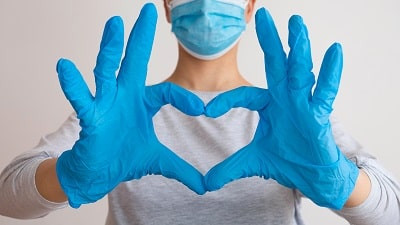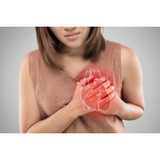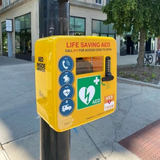What does Covid-19 mean for sudden cardiac arrest sufferers?
At the minute we are in unprecedented times. With the whole world seeing restrictions on our every day lives, Covid-19 has had the biggest impact on society in recent history. This of course, puts a lot of pressure and stress on people about their health and their worries surrounding Corona Virus.
Thankfully, the majority of people who suffer from Covid-19 make a full recovery, however if you are in a high risk category (which includes anyone with a heart condition), you should isolate for twelve weeks and follow the governments guidelines in order to keep as safe as possible.
What if I have a cardiac arrest at home?
In the UK, over 30,000 people have cardiac arrests out of hospital and they can happen anywhere, be it at home, at the shops or at work. With the country currently in lockdown, the aim for the government is to reduce the risk of people interacting in order to reduce the spread of Covid-19. With this, staying at home drastically reduces your contact with other people however may leave you a little worried about what to do should you or somebody in your household suffer from a cardiac arrest whilst at home.
With the importance of our emergency services highlighted more than even during these pressing times, it is so important to know what to do should someone need urgent assistance. Knowing how to respond and what action to take if somebody in your company suffers from a cardiac arrest can help save their life.
For any treatment to be effective, care needs to be administered to a patient who has fallen ill within the first three to five minutes. Using a defibrillator is your best chance to increase the survival rate with it significantly increasing if a defibrillator is used. Of course, your first step is to always contact 999 in order to get the emergency services to your assistance as soon as possible. Although Corona Virus is very serious and undoubtedly taking up lots of resource, paramedics, doctors and nurses are still on hand working in emergency departments across the country to help save lives.
At the moment in the UK, if calling for a life threatening emergency, an ambulance arrives within an average of 8 minutes. This could potentially be slightly longer due to the pandemic which is why being prepared and knowing what to do should someone suffer a cardiac arrest is so important in order to increase their chances of survival.
What do I do if someone suffers from a sudden cardiac arrest and how will I know?
There is often a misconception that a sudden cardiac arrest and a heart attack are the same thing, they are not. A heart attack is caused when the blood to the heart is blocked and is often correlated with lifestyle choices such as a poor diet, lack of exercise, smoking, and alcohol. A cardiac arrest on the other hand is caused due to an electrical fault within the heart and is much harder to predict. They can happen to anyone at any time regardless of age and gender and the person will fall unconscious within a matter of seconds are their heart has stopped beating.
The first thing to do when you are with someone who is suffering from a sudden cardiac arrest is to call 999. Contacting the emergencies services as soon as possible means that whilst you are delivering life saving care, a team of professionals are on their way to help you.
Once you have done this, you then need to begin performing CPR. As the persons heart has stopped pumping blood around the body, you need to now take over this role. Delivering chest compressions and then two breaths to your patient means that oxygenated blood can still be delivered to their vital organs, helping to keep them alive and reduce as much damage as possible.
Whilst administering CPR, find and use a defibrillator. These are thankfully being placed in many places across the country (you can search for a defibrillator map to find the nearest one to you or keep a look out around your home town or village) and are now often in workplaces, shops, bars and in public areas. Once you have found your defibrillator, follow the easy, simple steps that are on it so that if the defibrillator needs to deliver a shock to the patients heart it can do.
Following these three steps can make the difference between life and death when someone you know has a cardiac arrest. There are many defibrillators on the market suitable for a range of needs whether it’s for children, adults, needs to be stored outside or lightweight so can be easily carried. Take a look at the different defibrillators available so that you can pick the most suitable one for you and more importantly put your mind at rest.
Recent Posts
-
What is CPR?
Knowing the basics of first aid and how to deliver CPR (cardiopulmonary resuscitation) can make the …17th Nov 2024 -
What is a sudden cardiac arrest (SCA)?
Sudden Cardiac Arrest (SCA) is a critical medical emergency where the heart abruptly ceases to funct …17th Nov 2024 -
Empowering Communities: The Lifesaving Impact of CPR on Restart a Heart Day
Every year, on and around October 16th, an important event takes place - Restart a Heart Day. This a …16th Oct 2023




